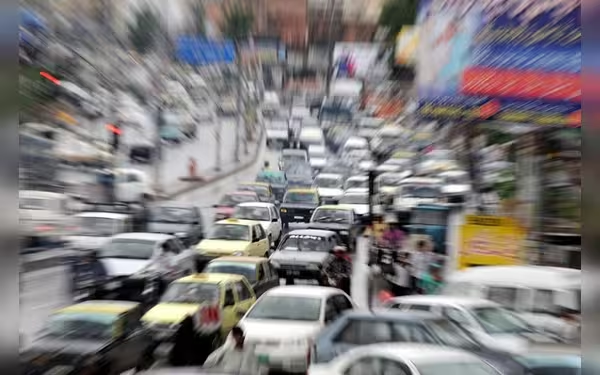Sunday, July 7, 2024 11:29 AM
Rawalpindi Deputy Commissioner Cracks Down on Gas Cylinder Use in Public Transport
- Ban on large gas cylinders in public transport for safety reasons
- Comprehensive operation initiated to enforce ban on gas cylinders
- Presence of hidden gas cylinders in vehicles poses severe safety risks
 Image Credits: tribune_pk
Image Credits: tribune_pkRawalpindi Deputy Commissioner issues strict directive to ban large gas cylinders in public transport vehicles to enhance safety and mitigate risks of explosions. Comprehensive operation underway to enforce the ban and address safety hazards posed by hidden gas cylinders.
In a bid to enhance safety measures in public transport, the Rawalpindi Deputy Commissioner has issued a strict directive to curb the use of large gas cylinders in vehicles. This directive targets a variety of vehicles, including wagons, minibuses, taxis, rickshaws, hiace, and coasters. The Deputy Commissioner has emphasized the importance of adhering to conventional fuels like petrol or diesel to mitigate safety risks associated with gas cylinders.
The ban on commercial large gas cylinders in public transport vehicles stems from concerns regarding safety, especially heightened during the summer season when the risk of explosions due to heat escalates. To enforce this directive, a comprehensive operation has been initiated, with teams from the Civil Defense Department conducting thorough inspections at strategic locations across Rawalpindi.
Recent reports from the Special Branch Police have uncovered instances of multiple large gas cylinders being surreptitiously installed in vehicles used for passenger transportation. These cylinders are often concealed in areas such as vehicle roofs or under passenger seats, with regular refilling to ensure uninterrupted gas supply. However, the presence of these cylinders poses a grave safety hazard, as a rupture in one cylinder could trigger a catastrophic chain reaction, endangering all cylinders and potentially leading to severe consequences.
It is imperative to take immediate action to address this pressing safety issue and safeguard the well-being of passengers and the general public. By adhering to the Deputy Commissioner's directive and transitioning back to conventional fuels, public transport operators can contribute to a safer transportation environment for all.













